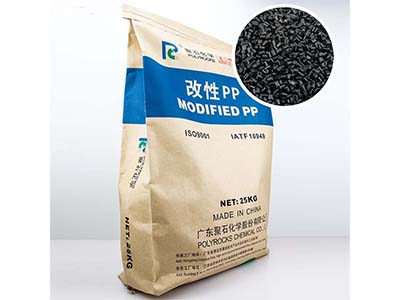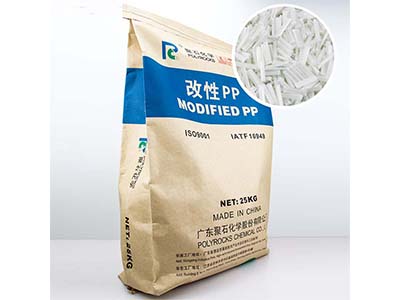Polypropylene (PP) has good heat resistance, and the products can be sterilized at a temperature above 100°C, and will not deform at 150°C without external force. However, if you want to use it at a higher temperature and will inevitably be interfered by external forces, problems such as warpage and deformation will occur. At this time, it needs to be heat-resistant and stiffened. So, how many methods do you know about the enhanced heat-resistant modification of polypropylene (PP)? This article introduces the following three PP enhanced modification methods:
1. PP filling modification
Filling modified PP generally refers to the addition of calcium carbonate, talc, mica powder, kaolin, wollastonite powder, barium sulfate and other non-metallic mineral powder materials or other materials to the PP resin, which can not only significantly improve the rigidity and resistance of PP Thermal properties, improved dimensional stability, high temperature creep resistance, hardness, etc., most of them can also play an incremental role in reducing costs.
In filling modification, the first thing to do is to solve the problem of the distribution and dispersion of the filler in the PP resin matrix. At the same time, the filler needs to be properly surface treated to have a better affinity with polypropylene. It can be said that the surface treatment method of filler and the choice of surface treatment agent are the key to the success or failure of filler modification. Nowadays, many packing manufacturers can provide different specifications and models for selection according to customer requirements. If the product quality requirements are higher, filler masterbatch can be used.

Filled modified PP (Polyrocks Chemical)
2. PP reinforced modification
Reinforcing modified PP generally refers to adding fibrous materials to PP to increase its strength, although fillers, especially fillers with large diameter-to-thickness ratios, also have the same effect. The fibrous materials used to strengthen PP mainly include glass fiber, carbon fiber, inorganic and metal whiskers and so on. Among them, glass fiber is the main reinforcing material, which can significantly improve the tensile strength, bending strength and modulus (rigidity), heat resistance, dimensional stability, etc. of PP plastic. Glass fiber reinforced PP can be used as engineering plastics in many occasions, such as fan blades, heater grilles, impeller pumps, lampshades, electric stoves and heater shells, etc. As now, the popular long glass fiber reinforced PP.

Glass fiber reinforced PP V0(Polyrocks Chemical)
3. PP nucleation modification
Nucleation modification of PP generally refers to adding a small amount of nucleating agent to PP to significantly increase the crystallization speed, crystallization rate and crystal fineness ratio of PP to achieve the stiffness and heat resistance modification of PP. PP nucleating agents include inorganic nucleating agents such as ultrafine talc, silicon dioxide, nano-calcium carbonate, and organic nucleating agents represented by sorbitol and its derivatives. Inorganic nucleating agents often have a certain effect on product gloss and transparency, while organic nucleating agents can significantly improve product transparency and surface gloss.
Copyright © POLYROCKS CHEMICAL CO., LTD. All Rights Reserved |
Sitemap
| Powered by
 粤ICP备10040394号
粤ICP备10040394号
CONTACT US
QUICK ENQUIRE FORM
* Indicate Mandatory fields